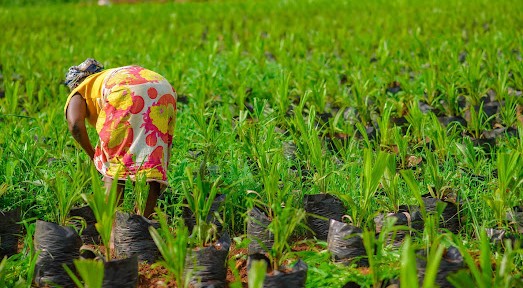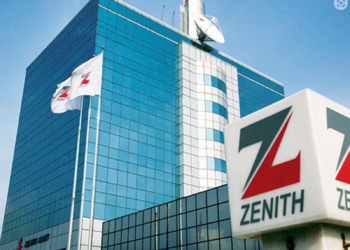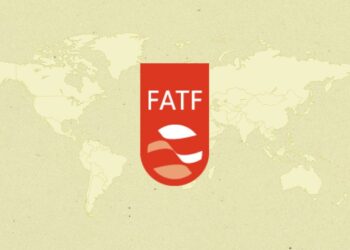Despite years of government-led poverty alleviation programmes, Nigeria’s hunger crisis continues to deepen. The disconnect lies not in the absence of social interventions but in their detachment from the core realities of food production and distribution.
In 2024 alone, an estimated 6.9 million additional Nigerians slipped into acute food insecurity, raising the total to approximately 31.8 million.
This figure reflects more than the fallout of economic downturns—it reveals a system-wide collapse of Nigeria’s food supply chain, driven by insecurity, inadequate infrastructure, and neglect of rural development.
Nigeria cannot meaningfully address poverty without first fixing its food system. Hunger and poverty are inseparable, and any strategy that fails to account for how food is grown, stored, and moved will fall disastrously short. In today’s Nigeria, poverty alleviation without rural security and food system reform is merely an exercise in futility.
The Farmers Who Feed Nigeria Are Under Siege
Smallholder farmers account for about 90 per cent of Nigeria’s food production, yet they remain some of the poorest and most endangered citizens in the country. Roughly 75 per cent of rural Nigerians live below the poverty line, trapped in a cycle of low yields, climate shocks, poor access to markets, and violent conflict.
The deterioration of rural security is not just a humanitarian crisis—it is a direct assault on Nigeria’s food economy. Ironically, some of the worst-hit areas are the regions that once served as Nigeria’s agricultural powerhouses. Benue, historically known as the “Food Basket of the Nation,” has become a death zone for many rural people. This month, at least 200 people were murdered in coordinated attacks on the Yelwata community. Similar scenes have played out in Plateau, Kaduna, and Niger states, turning farmland into battlegrounds. Between 2020 and 2024, no fewer than 1,356 farmers in northern Nigeria were killed in violent attacks, while others were displaced and forced to abandon their farms in the face of banditry and conflict. This level of violence is not only pushing farmers out but also discouraging private investment in rural agribusiness, halting the kind of innovation that Nigeria needs to achieve food self-sufficiency.
To make matters worse, non-state actors are increasingly extorting farming communities. Farmers in states like Zamfara and Katsina have been made to pay levies to armed groups—totalling over ₦139 million between 2020 and 2024—to access their own fields. This form of “protection money” has turned agriculture into a high-risk venture, discouraging farming activity and reducing the domestic food supply.
The insecurity is compounded by environmental pressures. Climate change continues to wreak havoc, particularly in the northern states, where flooding and drought are becoming more frequent. For instance, flooding in Nigeria destroyed an estimated 180,000 cultivated farmlands nationwide, displacing tens of thousands and destroying crops at harvest time. Without disaster insurance, support systems, or climate-adaptive infrastructure, farmers face ruin year after year with little hope of rebuilding.
Food Grows but Rarely Flows
Even when food is successfully grown, it often never reaches the consumer. Nigeria’s transportation and storage infrastructure remains critically underdeveloped, turning logistical gaps into a silent killer. Most rural roads are either unpaved or riddled with potholes, making it nearly impossible for farm produce to be transported to urban markets efficiently or safely. Insecurity along these routes has further paralysed movement, with trucks targeted by armed groups or blocked by militia checkpoints.
Lack of storage is another major issue. Nigeria produces about 55 million metric tonnes of food annually, but about 40 per cent is lost due to financing gaps, poor logistics and limited cold chain infrastructure. In the absence of cold chain systems or warehouses near farming zones, farmers are forced to sell off produce at rock-bottom prices or risk losing everything. For consumers, this means lower food availability and higher prices, worsening the food inflation crisis already gripping the country.
This broken chain, from farm to market to table, has left urban and rural dwellers alike vulnerable to hunger. Nigeria now faces one of the highest food inflation rates in sub-Saharan Africa, with basic staples such as rice, tomatoes, and yams becoming unaffordable for millions of households.
Social Welfare in Isolation Cannot Solve Hunger
Over the years, the federal government has invested in several programmes to reduce poverty, including the National Social Investment Programme, Conditional Cash Transfers, and the recently restructured Renewed Hope Initiative. While these schemes have brought temporary relief to some, they are inherently flawed if food supply issues remain unresolved.
Cash transfers may give families purchasing power, but what happens when markets are empty or when inflation makes their cash insufficient? In many urban areas, market shelves are bare or stocked with imported goods at premium prices. Without reliable domestic production and distribution, the value of social assistance is severely diminished. The mismatch between poverty relief and food accessibility renders anti-poverty strategies ineffective. Hunger cannot be solved by money alone; it requires a functioning food system.
Reimagining the Food Chain
Hunger in Nigeria is not a natural disaster—it is a policy failure. The country has the land, labour, and resources to feed itself, yet it remains the epicentre of a worsening food crisis. This crisis is not due to a lack of money or talent but to poor alignment between poverty programmes and the realities of rural life.
To lift millions out of poverty, the government must take an integrated approach that puts food supply at the heart of its development agenda. This approach demands investing not just in farmers but in the systems that support them. Roads must be repaired and secured. The government, through the Ministry of Agriculture and Rural Development, must ensure the establishment of cold storage facilities close to farm clusters. Federal and state governments must reinforce rural policing with the cooperation of local communities, and non-state armed groups must be systematically disarmed.
Policymakers must also revisit how social intervention programmes are structured. Rather than isolate cash transfers from agricultural realities, programmes should link cash with food stamps, nutrition vouchers, or subsidised farm produce. In addition, farmer cooperatives should be supported through public-private partnerships, with access to insurance, affordable credit, and modern farming tools.
More importantly, security must be treated as an economic policy priority. The government should ensure that relevant security agencies are empowered and well-armed to crush rising insecurity in the country. Food cannot grow in fear. Nigeria’s food future remains uncertain without the safety of those who plant and harvest.
Sami Tunji is a senior business correspondent at The PUNCH Newspaper and a Free Trade Fellow at Ominira Initiative.























